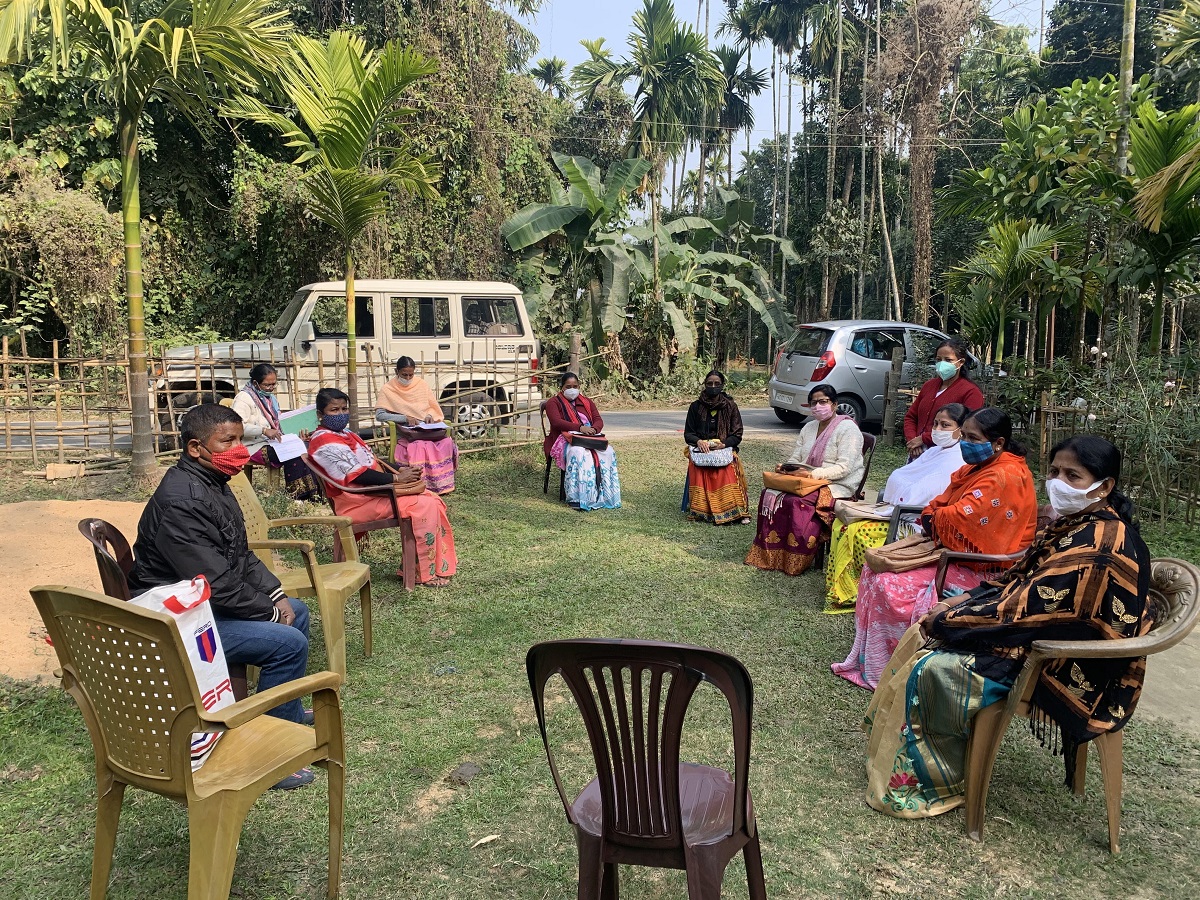
Many lost education and job opportunities as life inclined towards the online mode during the Covid-19 pandemic. Covid related information seldom reached the remote corners of the country. The digital divide became evident and seems to have widened even further. In this light, Digital Empowerment Foundation (DEF) launched an initiative with UNICEF called Risk Communication and Community Engagement (RCCE). The project aims to increase awareness about Covid-19, the associated stigmas, and other related information. Here, I bring you stories from two districts of Assam – Nagaon, and Morigaon, about the challenges faced and the impact of this program.
Montu Bora and Mintumani Saikia, RCCE volunteers from Khetrigaon, pointed out the most basic yet challenging issue they addressed was explaining to people what a pandemic is. Regardless of covid-19 information being all over the television and mobile phones, a community understanding of what they were dealing with was more important. They explained that the RCCE program put them at ease because it has addressed different covid related themes since the project started in June 2021. During my visit, RCCE had already covered four themes. They were: covid behaviour information, vaccine information, hand washing and sanitation, and pranayama information (breathing techniques).
Comprehending these details was further made easy through the dissemination process. Announcements in market areas and writings on the walls were a few of the most attention-grabbing steps. Volunteer Lucky Bhuyan from Dimow Chariali said that a crowd gathered around her when she wrote covid information on the Panchayat office’s wall. Few would ask questions and request a demonstration of handwashing and other sanitation habits/etiquettes. But these methods had a very short-lived impact.
People eagerly looked forward to the community meetings and door-to-door visits. Montu Bora received many inquisitive calls from villagers, asking him what new they would learn in the next community meeting. On the other hand, Udip Jyoti Phukan from Kapahera tackled covid questions and apprehensions during the door-to-door visits. He points out that given the scare of patients being taken away by healthcare workers wearing PPE kits, the villagers felt more comfortable asking about symptoms in a one-to-one meeting.
However, while digital services are a boon, they came as a curse when Covid-19 related misinformation reached the masses through Whatsapp and Youtube.
“People believed every false news that circulated over Whatsapp and Youtube. Some read that the vaccines hampered women’s reproductive system, while others feared it would kill them within two years”, said volunteer Udip Jyoti Phukan.
Even in such growing apprehensions, Udip patiently clarified every doubt in the door-to-door visits. He would visit at least 20 houses a day, explaining new covid updates and government regulations. Being a teacher in the local school, he sent informative videos and messages to his students and asked them to share it with their family. Udip, also, organised online classes and meetings for students who had proper digital accessibility. For those who didn’t, he wrote lengthy notes of each subject and delivered them to their homes.
Another issue that arose in Khetrigaon during the pandemic was people doubting the credibility of the vaccines and their long-term effects. To tackle such misinformation, many RCCE volunteers got vaccinated first. They set an example and gained the villagers’ trust to get vaccinated. They even took the initiative to get people tested, extended support by accompanying them to hospitals, and kept track of their health. From the hospital to back home, these RCCE volunteers were always there. In my opinion, they were nothing less than any frontline workers.
Ayushi Sharma is post graduate student at Jindal University










